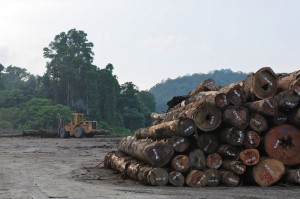Education is said to be a tool to address corruption in PNG. However, our education system is in dire strait with numerous issues to address as institutional corruption is a reality for PNG.

The issues range from over crowding of students, teachers housing, teachers missing out on leave fares yearly and list goes on. One cannot dismiss the fact that corruption has thread these issues to surface denoting the K780 million that was misused in the Department of Finance in 2010.
5 years on these 'educated' citizens have not reported themselves (and others) and adheard to the Finance Commission of Inquiry. Education facilities and resources are falling to misappropriation and many a govt. bodies do not carry the trust of its people. To date these 50 plus people including lawyers, senior beaurecrats and businessman have not been criminally prosecuted and are even in process of recieving thier masters degree and PhD's.
Source: DEVPOLICY BLOG
 Picture this. You’re at a party and, as can often happen (particularly in academic and development circles), conversation turns to corruption in developing countries. As beer bottles empty, and after discussing the pernicious effects of corruption and the lack of action by citizens to address it, someone passionately argues that corruption can only be reduced through education, and lots of it. If people really knew what corruption did to the economy and society then they wouldn’t tolerate it.
Picture this. You’re at a party and, as can often happen (particularly in academic and development circles), conversation turns to corruption in developing countries. As beer bottles empty, and after discussing the pernicious effects of corruption and the lack of action by citizens to address it, someone passionately argues that corruption can only be reduced through education, and lots of it. If people really knew what corruption did to the economy and society then they wouldn’t tolerate it.
But is this really the case? When it comes to fighting corruption, is education the magic bullet many people make it out to be?
Read the full article in the link, http://devpolicy.org/is-education-a-magic-bullet-for-addressing-corruption-insights-from-papua-new-guinea-20150617/?utm_source=Devpolicy&utm_campaign=01197ec7aa-RSS_EMAIL_CAMPAIGN&utm_medium=email&utm_term=0_082b498f84-01197ec7aa-312067489
